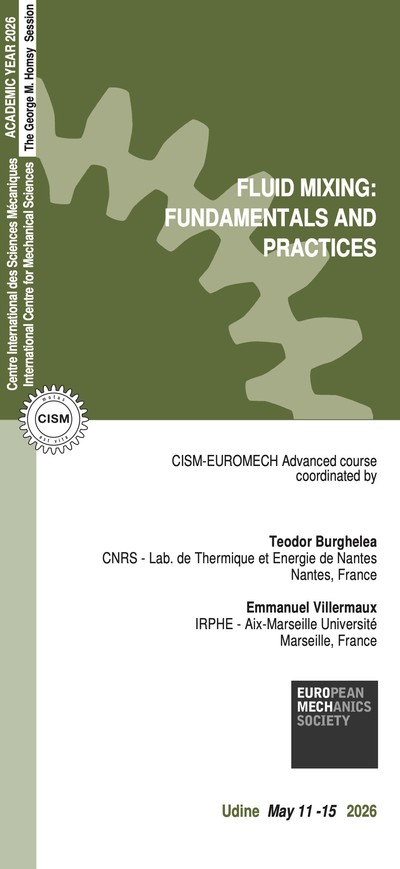K. Hackl, U. Hoppe, D. Kochmann, Variational modeling of microstructures in plasticity. In: J. Schröder, K. Hackl (Eds.): Plasticity and beyond: microstructures, crystal plasticity and phase transitions, International Centre for Mechanical Sciences: Courses and lectures, 550, Springer, 65–129, 2014.
S. Müller, Variational models for microstructure and phase transitions. In: Calculus of variations and geometric evolution problems (F. Bethuel et al., eds.), Springer Lecture Notes in Math. 1713. Springer, Berlin, 85-210, 1999.
A. Mielke, T. Roubícek, Rate-independent systems. Theory and application, Chapter 1. Applied Mathematical Sciences 193. New York, NY: Springer, 2015.
L. De Lorenzis, T. Gerasimov, Numerical Implementation of Phase-Field Models of Brittle Fracture. In: Modeling in Engineering Using Innovative Numerical Methods for Solids and Fluids, CISM – International Center for Mechanical Sciences – Courses and Lectures, 599, Springer, 75-101, 2020.
Laurent Stainier, A Variational Approach to Modeling Coupled Thermo-Mechanical Nonlinear Dissipative Behaviors. In Stéphane P.A. Bordas, editor: Advances in Applied Mechanics, Vol. 46, Academic Press, 69-126, 2013.
S. Govindjee, M. J. Zoller, und K. Hackl, A fully-relaxed variationally-consistent framework for inelastic micro-sphere models: finite viscoelasticity, Journal of the mechanics and physics of solids, 127, 1-19, 2019.
S. Govindjee, A. Mielke, G. J. Hall, The free energy of mixing for n-variant martensitic phase transformations using quasi-convex analysis,Journal of the Mechanics and Physics of Solids, 51, 1-26, 2003.
6 lectures on: variational phase field modeling of damage and fracture: construction of the brittle fracture model and choice of its components, nucleation vs. propagation, second- and fourth-order models, irreversibility and boundedness constraints, numerical solution schemes, extensions to more complex model settings.
6 lectures on: topics from the calculus of variations: lower semicontinuity and different notions of convexity, relaxation, Gamma-convergence, homogenization, multiscale modeling and discrete to continuum transition for solids as an application of Gamma-convergence.
6 lectures on: extremal principles and effective models for materials and structures, applications to solid-solid phase transformations, liquid crystal elastomers, visco-elasticity, and plasticity. Lectures will build on the theoretical foundations presented by M. Friedrich and D. Knees, and the frameworks presented by K. Hackl.
5 lectures on: fundamentals of variational methods, thermodynamic principles, relaxed envelopes from a mechanical perspective, evolution laws and applications to diffusive processes and phase transformations
6 lectures on: weak formulations and solution concepts for rate-independent processes, discussion of approximation strategies, application to fracture and damage processes. The main focus in these lectures is on the mathematical background of these approaches.
6 lectures on: continuous and time discrete variational principles for dissipative systems, with focus on plasticity and viscoplasticity, variational formulations for coupled boundary-value problems, with focus on thermomechanics, links with thermodynamics, algorithmic aspects.
ADMISSION AND ACCOMMODATION
The course is offered in a hybrid format giving the possibility to attend the course also by remote (on Microsoft Teams platform). On-site places are limited and assigned on first come first served basis.
The registration fees are:
- On-site participation, 600.00 Euro + VAT*
This fee includes a complimentary bag, five fixed menu buffet lunches, hot beverages, downloadable lecture notes.
Deadline for on-site application is June 17, 2023.
- Online participation, 250.00 Euro + VAT*
This fee includes downloadable lecture notes.
Deadline for online application is July 5, 2023.
Application forms should be sent on-line through the following web site: http://www.cism.it
A message of confirmation will be sent to accepted participants.
Upon request a limited number of on-site participants can be accommodated at CISM Guest House at the price of 35 Euro per person/night (mail to: foresteria@cism.it).
* where applicable (bank charges are not included). Italian VAT is 22%.
CANCELLATION POLICY
Applicants may cancel their registration and receive a full refund by notifying CISM Secretariat in writing (by email) no later than:
- June 17, 2023 for on-site participants (no refund after the deadline);
- July 5, 2023 for online participants (no refund after the deadline).
Cancellation requests received before these deadlines will be charged a 50.00 Euro handling fee. Incorrect payments are subject to Euro 50,00 handling fee.
GRANTS
A limited number of participants from universities and research centres who are not supported by their own institutions can request the waiver of the registration fee and/or free lodging.
Requests should be sent to CISM Secretariat by May 17, 2023 along with the applicant's curriculum and a letter of recommendation by the head of the department or a supervisor confirming that the institute cannot provide funding. Preference will be given to applicants from countries that sponsor CISM.





